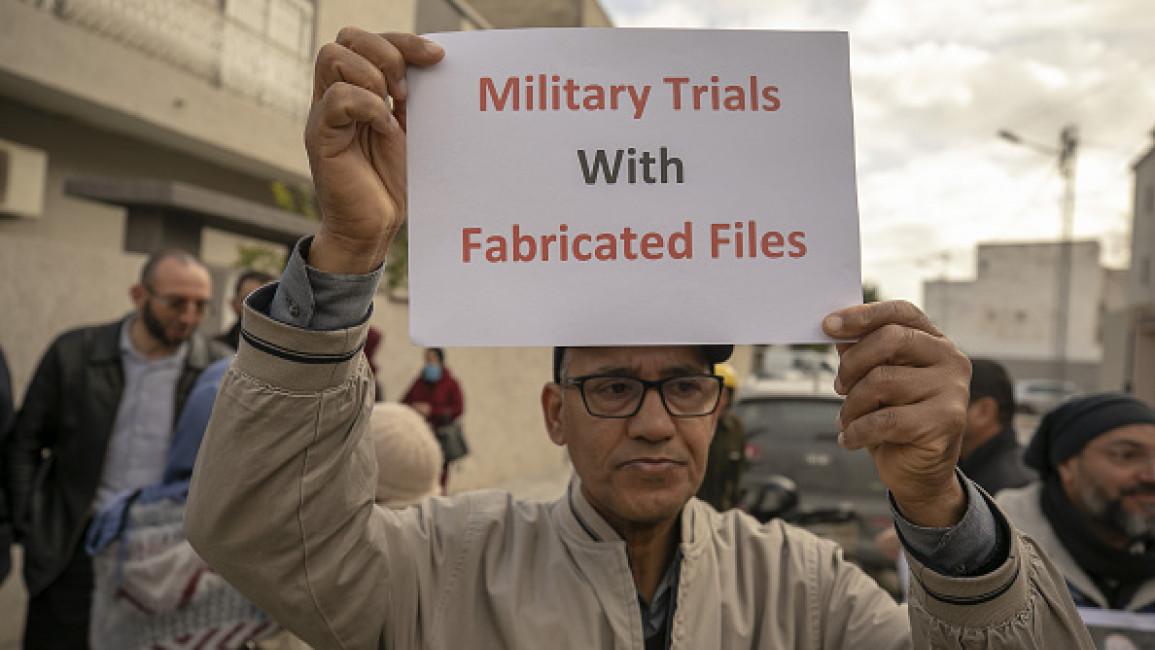Tunisia: Amnesty urges repeal of opposition MPs' jailing by military court
Amnesty International has called for a Tunisian military court to overturn its recent convictions of six citizens - including four opposition figures - and to release those who are detained.
The Military Court of Appeals sentenced the group on 20 January for their involvement in an incident at a Tunis airport almost two years ago.
Four of those sentenced belong to the Al Karama Coalition opposition party, including party chairman Seifeddine Makhlouf, Maher Zid, Nidal Saoudi, and Mohamed Affes, who were given 5 to 14 month-long prison terms for "insulting a public official" and "disturbing public order".
In March 2021, the group were implicated in a stand-off with police at Tunis-Carthage International Airport, where they defended a woman who had been the subject of a travel ban at the time. The woman was attempting to travel abroad, but was barred for "security reasons," Makhlouf disclosed to Amnesty last year.
The group were subsequently arrested and charged, with their cases referred to a military prosecutor.
Moreover, lawyer Mehdi Zagrouba was also sentenced over the same incident on similar charges, and another man, Lotfi Mejri, was handed a three-month suspended sentence for using his mobile phone to film the confrontation between the group and police officers.
Additionally, Zagrouba was given a five-year ban on practicing law.
Since President Kais Saied's controversial power grab in July 2021, military courts in Tunisia have increasingly tried and prosecuted more civilians, Amnesty said, amid what has been described as a decline in human rights across the north African country.
The rights group says that the group should have been tried by civilian courts, and stress that military courts should only handle cases relating to military personnel.
In July 2021, Saied froze parliament and sacked Prime Minister Hichem Mechichi in a move that was described as a "coup" by critics of the president.
The power grab also saw Saied seize far-reaching executive powers, including judicial powers, and implementing a new, authoritarian constitution. The president also introduced decrees infringing on freedom of expression and the right to privacy.
In the aftermath of Saied’s power grab, rights organisations and activists have issued stark warnings concerning human rights in Tunisia, where authorities have been accused of using repressive means to target opponents of the president, as well as journalists, lawyers and activists in a country which was once perceived as one of the success stories of the Arab Spring.


![President Pezeshkian has denounced Israel's attacks on Lebanon [Getty]](/sites/default/files/styles/image_684x385/public/2173482924.jpeg?h=a5f2f23a&itok=q3evVtko)



 Follow the Middle East's top stories in English at The New Arab on Google News
Follow the Middle East's top stories in English at The New Arab on Google News


